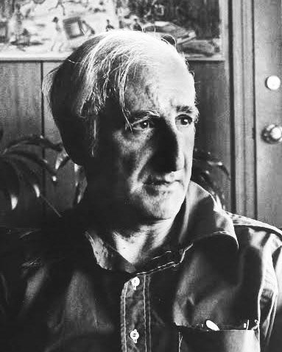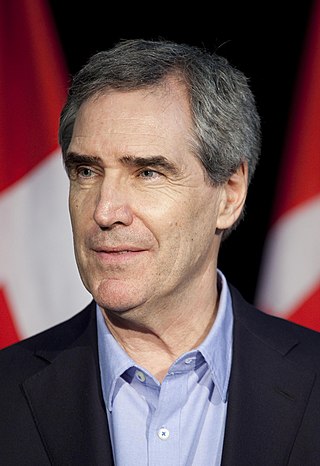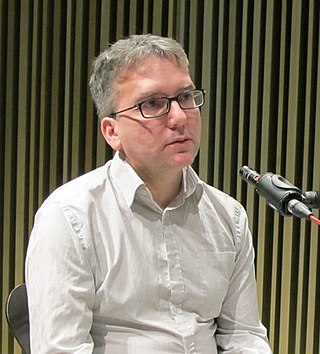The argument from morality is an argument for the existence of God. Arguments from morality tend to be based on moral normativity or moral order. Arguments from moral normativity observe some aspect of morality and argue that God is the best or only explanation for this, concluding that God must exist. Arguments from moral order are based on the asserted need for moral order to exist in the universe. They claim that, for this moral order to exist, God must exist to support it. The argument from morality is noteworthy in that one cannot evaluate the soundness of the argument without attending to almost every important philosophical issue in meta-ethics.

Beauty is commonly described as a feature of objects that makes these objects pleasurable to perceive. Such objects include landscapes, sunsets, humans and works of art. Beauty, together with art and taste, is the main subject of aesthetics, one of the major branches of philosophy. As a positive aesthetic value, it is contrasted with ugliness as its negative counterpart.

Jurisprudence is the philosophy and theory of law. It is concerned primarily with what the law is and what it ought to be. That includes questions of how persons and social relations are understood in legal terms, and of the values in and of law. Work that is counted as jurisprudence is mostly philosophical, but it includes work that also belongs to other disciplines, such as sociology, history, politics and economics.
Meritocracy is the notion of a political system in which economic goods or political power are vested in individual people based on ability and talent, rather than wealth or social class. Advancement in such a system is based on performance, as measured through examination or demonstrated achievement. Although the concept of meritocracy has existed for centuries, the first known use of the term was by sociologist Alan Fox in the journal Socialist Commentary in 1956. It was then popularized by sociologist Michael Dunlop Young, who used the term in his dystopian political and satirical book The Rise of the Meritocracy in 1958. Today, the term is often utilised to refer to social systems, in which personal advancement and success are primarily attributed to an individual's capabilities and merits.

Virtue ethics is an approach to ethics that treats virtue as central.

Ben-hur Haig Bagdikian was an Armenian-American journalist, news media critic and commentator, and university professor.

Benjamin Aaron Shapiro is an American columnist, author, conservative political commentator, media personality, attorney, and businessman. At age 17, he became the youngest nationally syndicated columnist in the United States. Shapiro writes columns for Creators Syndicate, Newsweek, and Ami Magazine, and serves as editor emeritus for The Daily Wire, which he co-founded. Shapiro is the host of The Ben Shapiro Show, a daily political podcast and live radio show. He was editor-at-large of Breitbart News from 2012 until his resignation in 2016. Shapiro has written 11 books.

Samuel Benjamin Harris is an American philosopher, neuroscientist, author, and podcast host. His work touches on a range of topics, including rationality, religion, ethics, free will, neuroscience, meditation, psychedelics, philosophy of mind, politics, terrorism, and artificial intelligence. Harris came to prominence for his criticism of religion, and Islam in particular, and is known as one of the "Four Horsemen" of New Atheism, along with Richard Dawkins, Christopher Hitchens, and Daniel Dennett.

Timothy James Keller was an American Calvinist pastor, preacher, theologian, and Christian apologist. He was the chairman and co-founder of Redeemer City to City, which trains pastors for service around the world. He was also the founding pastor of Redeemer Presbyterian Church in New York City and the author of The New York Times bestselling books The Prodigal God: Recovering the Heart of the Christian Faith (2008), Prayer: Experiencing Awe and Intimacy with God (2014), and The Reason for God: Belief in an Age of Skepticism (2008). The prequel for the latter is Making Sense of GOD: An Invitation to the Skeptical (2016).

Michael Grant Ignatieff is a Canadian author, academic and former politician who served as the leader of the Liberal Party of Canada and Leader of the Official Opposition from 2008 until 2011. Known for his work as a historian, Ignatieff has held senior academic posts at the universities of Cambridge, Oxford, Harvard, and Toronto. Most recently, he was rector and President of Central European University; he held this position from 2016 until July 2021.

Jennifer Donnelly is an American writer best known for the young adult historical novel A Northern Light.
Joshua Green is an American journalist who writes primarily on United States politics. He is currently the senior national correspondent at Bloomberg Businessweek. He is a weekly columnist for The Boston Globe and his work has also appeared in The Atlantic.
Tablet is an online magazine focused on Jewish news and culture. The magazine was founded in 2009 and is supported by the Nextbook foundation. Its editor-in-chief is Alana Newhouse.

Yoram Reuben Hazony is an Israeli-American philosopher, Bible scholar, and political theorist. He is president of the Herzl Institute in Jerusalem and serves as the chairman of the Edmund Burke Foundation.

Benjamin Eric Sasse is an American academic administrator and former politician who is the president of the University of Florida. He served as a United States senator from Nebraska from 2015 to 2023 and is a member of the Republican Party.

Joseph Bottum is an American author, best known for his writings about literature, American religion, and neoconservative politics. Noting references to his poems, short stories, scholarly work, literary criticism, and many other forms of public commentary, reviewer Mary Eberstadt wrote in National Review in 2014 that “his name would be mandatory on any objective short list of public intellectuals” in the United States. Coverage of his work includes profiles in The New York Times, South Dakota Magazine, and The Washington Times. In 2017, Bottum took a position at Dakota State University in Madison, South Dakota.

Mark Fisher, also known under his blogging alias k-punk, was an English writer, music critic, political and cultural theorist, philosopher, and teacher based in the Department of Visual Cultures at Goldsmiths, University of London. He initially achieved acclaim for his blogging as k-punk in the early 2000s, and was known for his writing on radical politics, music, and popular culture.

Emma Cline is an American writer and novelist, originally from California. She published her first novel, The Girls, in 2016, to positive reviews. The book was shortlisted for the John Leonard Award from the National Book Critics Circle and the Center for Fiction's First Novel Prize. Her second novel, The Guest, was published in 2023. Her stories have been published in The New Yorker, Tin House, Granta and The Paris Review. In 2017 Cline was named one of Granta's Best of Young American Novelists, and Forbes named her one of their "30 Under 30 in Media". She is a recipient of the Plimpton Prize.

The Virtue of Nationalism is a 2018 book by Israeli-American political theorist Yoram Hazony.

The Benedict Option: A Strategy for Christians in a Post-Christian Nation is a 2017 book by writer and conservative commentator Rod Dreher on Christianity and Western culture. Drawing very loosely on the writings of early Christian monk Benedict of Nursia and the philosophy of Alasdair MacIntyre, Dreher argues for the formation of virtuous Christian communities in response to an increasingly secular culture. The book produced discussion and debate in Christian and secular circles over the issues of cultural engagement and the direction of Christian communities. Although Alasdair MacIntyre was claimed as an inspiration for the movement, MacIntyre has criticized it as politically conservative.
















